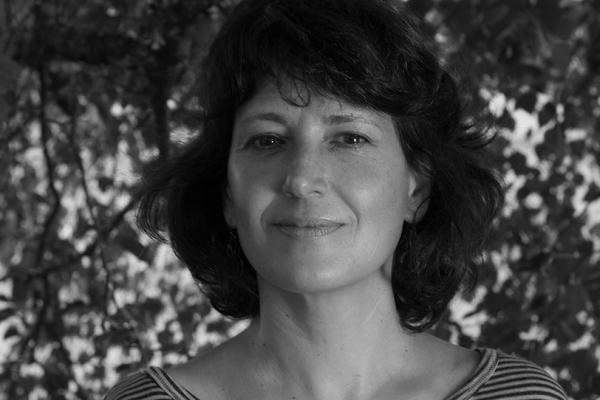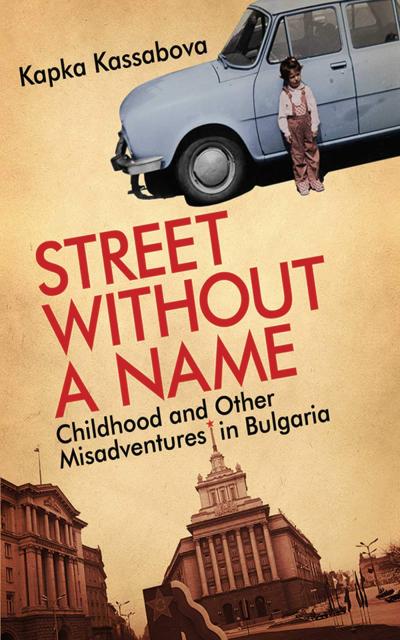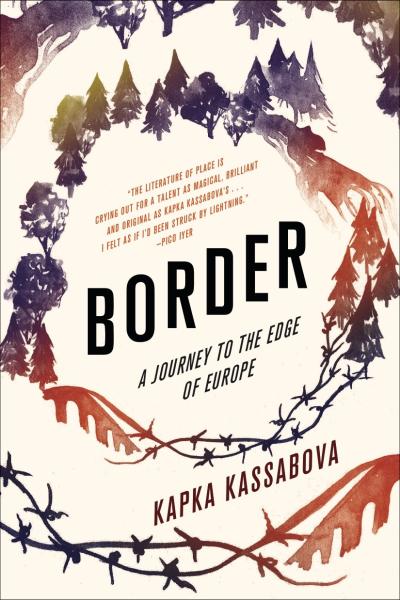Kapka Kassabova: Understanding across Borders and Cultures

Kapka Kassabova will visit Ohio State and discuss her book, Border, during the Moving Subjects Week.
Internationally recognized, award-winning novelist, poet, and essayist, Kapka Kassabova is foremost a writer of (personal) journeys. She writes about people who are “hybrid monsters” (to evoke another Bulgarian expatriate Julia Kristeva), who have “borrowed identities” and “fractured psyches,” who move among communities and across borders, and who suffer, endure, and celebrate their difference and resilience. In the early 1990s, when Kassabova was sixteen, she left her native Bulgaria with her parents, settled in New Zealand and from there moved to Scotland, where she still resides. For brief periods of time, she lived in other European and South American countries.

Despite the international acclaim of Kassabova’s most recent Border: A Journey to the Edge of Europe, I have to admit that her earlier book, Street without a Name, a journey of childhood memories and present explorations through Sofia, the Rhodope mountains and the Black Sea coast, layered with sweet sadness and bitter realization about our common socialist past, moved me more (and not only because my family also drove the Czech car model Skoda). More than other Bulgarian diaspora writers, Kassabova’s texts engage with questions, such as: What does it mean to write about yourself and your country, while living outside of its borders? What does it mean to share your experience regarding the past and present of a state years after you have left it, disappointed and bitter?
As immigrant myself, who has crossed borders and moved between countries, my reflection on Kassabova evokes a deeply intimate musing on the roads I have traveled. Now, as I am typing these thoughts, I have lived in the United States longer than I lived in Bulgaria, but the senses Bulgaria continues to stir up in me are as complex and painful as when I left it, although now they are more mature and more acceptable. While I do not share all of Kassabova’s “diasporic intimacies” (to recall Svetlana Boym’s argument), reading Kassabova’s works uncovered these emotions from underneath the hustle and bustle of my everyday life. She illuminates the contradictory and conflicting sentiments of living outside one’s country of birth in today’s global world, even though it has shrunk to the size of a palm. Any momentous thought of my home country evokes an odd fusion of pride, longing for my mother(land), and aching sadness settles in my heart. This extraordinary blend of conflicting senses, this mental and emotional anguish of having left one’s country but not being able to leave behind the acute memories of one’s mother, childhood, school and university friends, language and culture are magnified in the writings of Kassabova.

Another journey back to her home country and the communities at and across its borders permeates the pages of her most celebrated book, Border: A Journey to the Edge of Europe. Translated into German, Polish and Spanish, and with French, Greek, Danish, Chinese, Ukrainian and Serbian editions forthcoming, it presents a sensitive and reflective exploration of border communities and personal stories. By transforming her travels into cultural tales infused with myths, history, and politics, through intelligent and sophisticated writing, humor, lyrical eloquence, and vivid language, Kassabova offers a text generating both the pleasure of reading and the pain of reflecting upon the sad, or to put it in her words, “cretinous” passions and ideologies which create borders, separate people, denigrate humanity and the human experience. Her writings deftly prod the reader to see beyond differences and embrace the complexities of each individual life story.
References
Boym, S. (2000), “On Diasporic Intimacy: Ilya Kabakov’s Installations and Immigrant Homes,” Intimacy, 226–251, Chicago: U of Chicago P.
Kassabova, K. (2008), Street without a Name: Childhood and Other Misadventures in Bulgaria, London: Portobello.
Kassabova, K. (2017), Border: A Journey to the End of Europe, Minneapolis: Graywolf Press.
Kristeva, J. (2000), “Bulgaria, My Suffering!,” in The Crisis of the European Subject, 163–83, New York: Other Press.
More about Kapka Kassabova: Kassabova is a poet and writer of creative non-fiction. Her books are journeys into particular human geographies. Her latest book, Border: a journey to the edge of Europe (Granta/Graywolf 2017), won the British Academy’s Al-Rodhan Prize for Global Cultural Understanding, The Saltire Scottish Book of the Year, The Stanford-Dolman Travel Book of the Year, the Highlands Book Prize, and was shortlisted for the Baillie-Gifford, the Royal Society of Literature Ondaatje Prize, and the NBCC Award in the USA. Her next book is To The Lake: a Balkan journey of war and peace (Granta/Graywolf 2020). Kapka Kassabova grew up in Bulgaria, was university-educated in New Zealand, and now lives in the Highlands of Scotland.
The author of this blog is Yana Hashamova, Professor and Chair of the Department of Slavic and East European Languages and Cultures.
